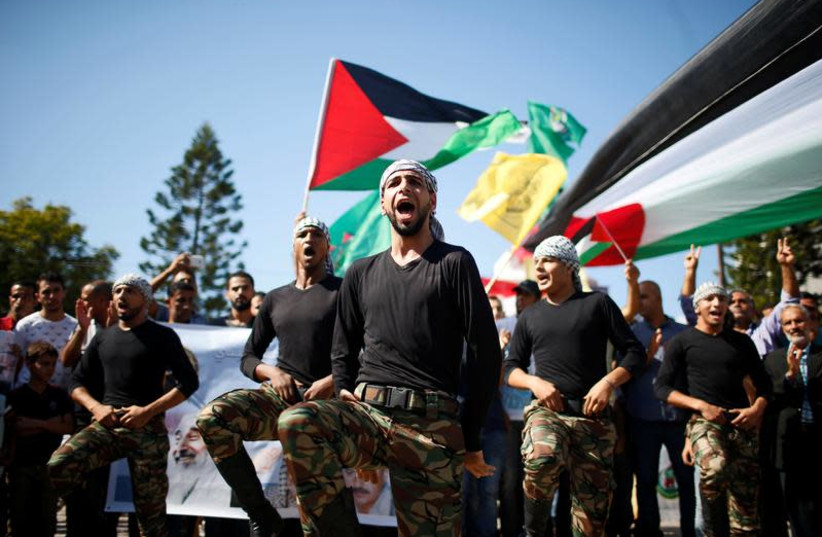Marking the first time in which a formal Palestinian voice has blamed Hamas for the disastrous outcomes of the October 7 massacre, Fatah said that “those who were responsible for the return of the occupation to Gaza Strip and caused the Nakba [catastrophe] which our Palestinian people live… have no right to dictate national priorities.”
The accusations came in response to Hamas’s critique of the appointment of new Palestinian Prime Minister Mohammad Mustafa, described as a close partner of President Mahmoud Abbas.
Hamas said this appointment was an “individual decision,” claiming that the PA is “being preoccupied with formal steps devoid of substance,” and arguing that the new Palestinian government would lack national consensus.
Hamas also rejected what they called a “policy of exclusivity and a deepening of division at a pivotal historic moment,” calling for national consensus and unity, as well as the formation of a unified leadership and the holding of “free, democratic elections.”
In its reply published on Friday, Fatah slammed Hamas, demanding: “Did Hamas consult the Palestinian leadership or any Palestinian national party when it made its decision to carry out the ‘adventure’ of last October 7, which led to a catastrophe more horrific and crueler than the Nakba of 1948?

“And did Hamas consult the Palestinian leadership that is now negotiating with Israel and offering it concessions after concessions, which have no goal other than securing guarantees of personal security for its leadership to receive, and to try to reach an agreement with [Prime Minister Benjamin] Netanyahu to maintain its divisive role in Gaza and the Palestinian arena?” it asked.
Fatah and Hamas: A bloody history of rivalry
Fatah also referred to Hamas’s bloody takeover of Gaza in 2007 after winning the election, questioning whether “Hamas consulted anyone when it carried out its black coup against Palestinian national legitimacy in 2007, and refused all initiatives to end the division?”
As for the appointment of Mustafa, Fatah mocked Hamas, saying he “is armed with the national agenda and not with false agendas that have brought nothing but woes to the Palestinian people and have not achieved anything for them,” also asking cynically if Hamas would rather they “appoint a prime minister from Iran, or let Tehran appoint a prime minister for the Palestinians,” pointing at Hamas’s alliance with the Islamic Republic.
The Fatah statement also made a point to refer to the lavish lifestyles led by Hamas leadership in Qatar, noting that “it seems that the comfortable life that this leadership lives in seven-star hotels has blinded it from what is right.”
Fatah also wondered why they and their families fled Gaza and left the Palestinian people to face a “brutal war of extermination” without any protection.
Hamas has shown increased popularity in the Palestinian street, recording major successes in local and student elections. According to a poll conducted by Khalil Shikaki during the temporary ceasefire of December 2023, the terrorist group has enjoyed more popularity since the October 7 massacre.
The poll showed that 57% of respondents in Gaza and 82% in the West Bank believed that Hamas was correct in launching the massacre.
